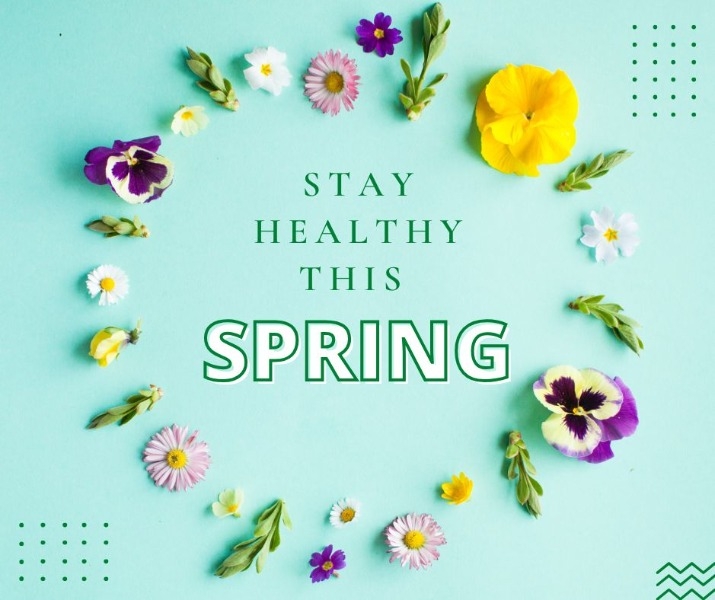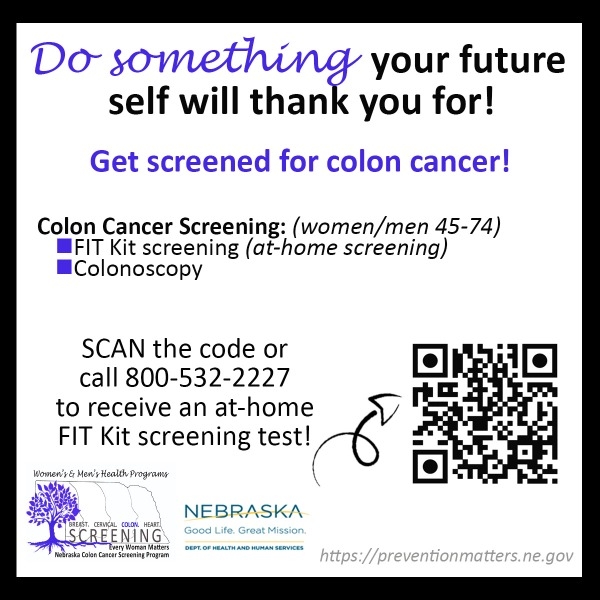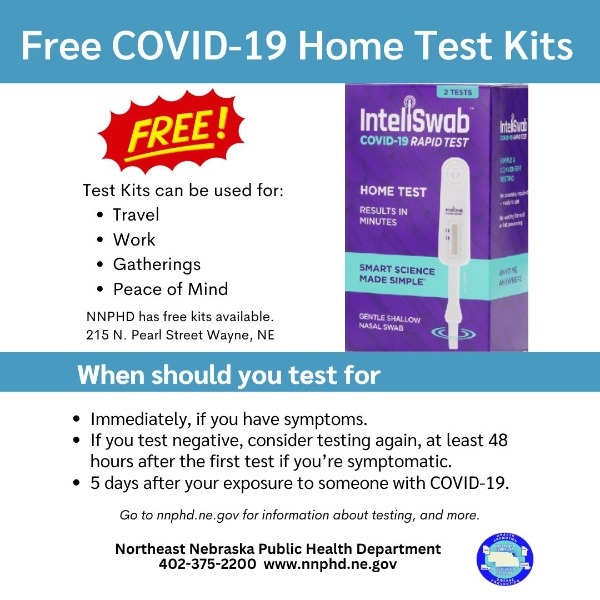



Colon Rectal Cancer Screening
Colorectal cancer is steadily on the rise and is being detected in younger people. There is no exact cause, but our diet and exercise patterns are some of the suspects for the increase in cases. It is imperative to be pro-active and complete regular screenings that may catch colorectal cancer early. We provide free colorectal cancer screening kits to individuals 45 and older that wish to complete it within the privacy of their own home. The Fecal Immunochemical Test or FIT is easily done at home and takes about 5 . . .

We've Got FREE COVID-19 Testing Kits.
Northeast Nebraska Public Health Department 215 N Pearl Street in Wayne, Nebraska 8:30AM-4:30PM Monday-Thursday 8:30AM-1PM Friday. COVID-19 testing can help you know if you have COVID-19 so you can decide what to do next, like getting treatment to reduce your risk of severe illness and taking steps to lower your chances of spreading the virus to others. Questions? Give us a call at 402-375-2200.
